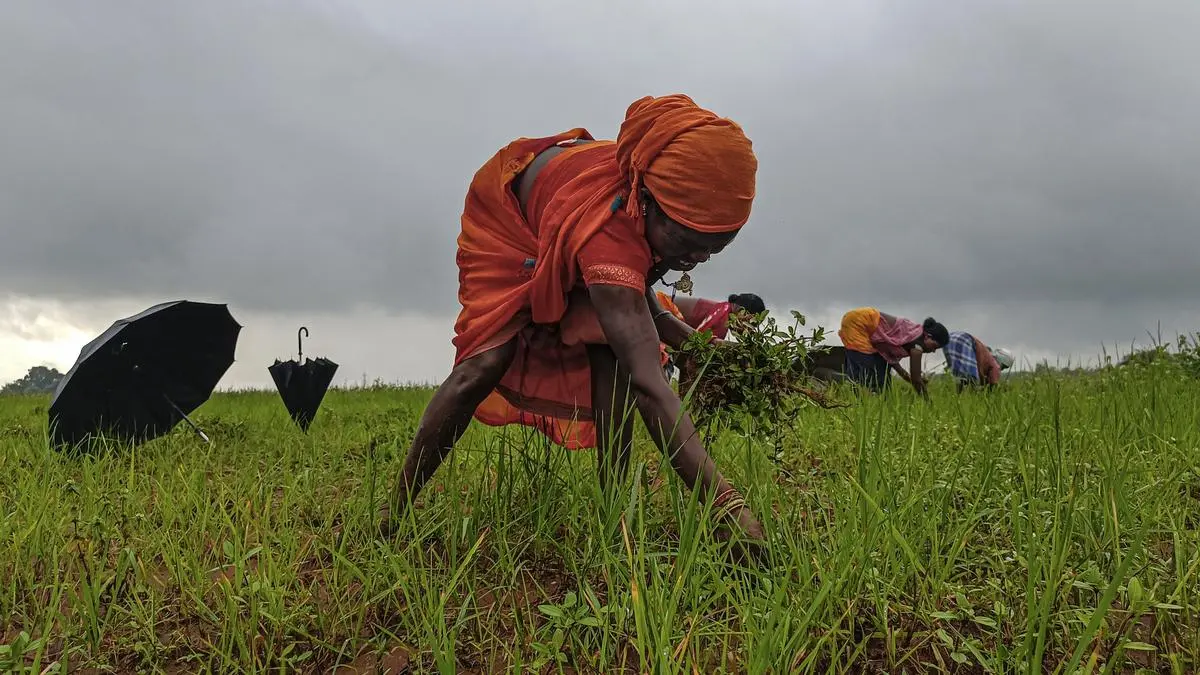
Several farmers who received subsidies under the Paramparagat Krishi Vikas Yojana reportedly reverted to conventional farming after a few years due to lower returns
| Photo Credit:
PTI
As NITI Aayog prepares to hold a countrywide workshop to popularise natural farming as a sustainable model, the biggest challenge will be sustaining farmers’ interest in practicing these methods. Experts note that several farmers who received subsidies under the Paramparagat Krishi Vikas Yojana (PKVY) reportedly reverted to conventional farming after a few years due to lower returns.
“The Mission on natural farming is meant to encourage farmers; it is not a compulsion. The farmer will only continue if he finds it economical, as the subsidy is intended only to cover some input costs for the first two years,” a senior official said. The official said farmers must self-produce inputs, such as Jeevamrit, Ghan Jeevamrit, and Beejamrit.
Under the National Mission on Natural Farming (NMNF), registered and willing farmers receive ₹4,000 per acre for two years. The government also assists them in obtaining Participatory Guarantee System for India (PGS-India) certification, which is designed to help them secure a premium price for their produce. However, many experts believe consumers are neither aware of PGS nor willing to pay more, as certified organic products already command a premium over produce grown using chemical fertilizers and pesticides.
Agriculture Minister Shivraj Singh Chouhan announced in August that Prime Minister Narendra Modi would launch the NMNF workshop. This event was originally scheduled for August 23 but was postponed. Sources said NITI Aayog now plans to hold it this month to cover some areas under the rabi (winter-grown) cropping season.
Certification and scheme data
PGS-India, the government’s community-based certification programme, allows farmers to self-declare their produce as organic. It caters primarily to the domestic market, as it is not recognised by overseas countries. In contrast, the National Programme for Organic Production (NPOP), overseen by APEDA (the Commerce Ministry’s agri-export promotion body), ensures compliance with international standards through third-party certification by accredited agencies.
Under the PKVY scheme, which encourages farmers to adopt organic practices, participants receive ₹31,500 per hectare over a three-year period. Official data shows that ₹2,265.86 crore was released under PKVY between 2015 and January 30, 2025, covering an area of approximately 1.5 million hectares.
However, sources said no comprehensive study has been conducted to determine how many farmers who received the PKVY subsidy have returned to conventional farming using chemical inputs. They stressed the need to evaluate the scheme’s effectiveness for farmers who committed to organic practices.
Published on October 7, 2025
